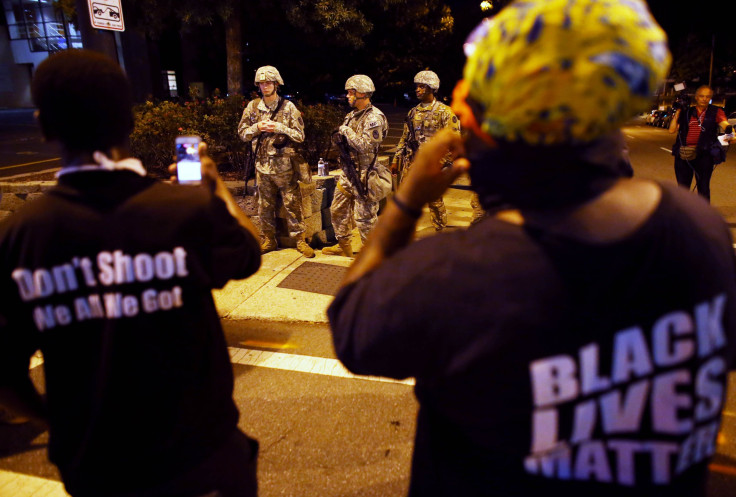US Police Killings Reminiscent Of Lynching, UN Group Says

Police killings of black people in the United States are reminiscent of lynchings and the government must do far more to protect them, a United Nations working group says in a report that will be debated at the U.N. Human Rights Council on Monday.
The hard-hitting criticism — drawing a comparison between modern police behavior and mob killings of blacks in the 19th and 20th centuries — comes at a time of renewed racial tension in the United States. This week Charlotte, North Carolina, saw street riots over the shooting of a black man, Keith Scott, by a black police officer. On Friday, a white police officer who fatally shot an unarmed black man turned herself into authorities in Tulsa, Oklahoma.
"Contemporary police killings and the trauma that they create are reminiscent of the past racial terror of lynching," said the report by the U.N. Working Group of Experts on People of African Descent.
Most lynching victims died by hanging. A 2015 report by a non-profit organization, the Equal Justice Initiative, said 3,959 black people were killed in "racial terror lynchings" in a dozen southern states between 1877 and 1950.
The U.N. expert report was based on a visit to the United States in January by a five-member group chaired by Filipino law professor Ricardo A. Sunga III. Since the visit, anger over police tactics has risen as their fatal encounters with African-Americans, many of them unarmed, have sparked protests and unrest across the country.
RACIAL LEGACY
Although the United States has made efforts at reform, the group said it remained "extremely concerned" about the human rights situation of African-Americans.
"In particular, the legacy of colonial history, enslavement, racial subordination and segregation, racial terrorism and racial inequality in the United States remains a serious challenge, as there has been no real commitment to reparations and to truth and reconciliation for people of African descent.
"Impunity for State violence has resulted in the current human rights crisis and must be addressed as a matter of urgency."
Police killings go unpunished because initial investigations are usually conducted by the police department where the alleged perpetrator works, because prosecutors have wide discretion over presenting charges, and because the use of force is not subject to international standards, the experts' group said.
They recommended the United States create a reliable national system to track killings and excessive use of force by law enforcement officials, and end racial profiling, which is "a rampant practice and seriously damages the trust between African Americans and law enforcement officials".
To improve race relations, education should be "accompanied by acts of reconciliation" to overcome bigotry and past injustices, while federal and state laws should recognize the negative impact of enslavement and racial injustice, the report added.
© Copyright Thomson Reuters 2024. All rights reserved.





















